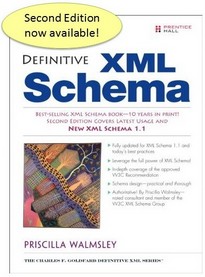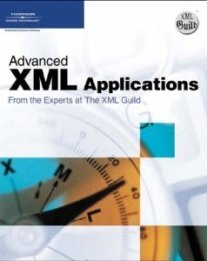gml:ConventionalUnit
Conventional units that are neither base units nor defined by direct combination of base units are used in many application domains. For example electronVolt for energy, feet and nautical miles for length. In most cases there is a known, usually linear, conversion to a preferred unit which is either a base unit or derived by direct combination of base units.
The gml:ConventionalUnit extends gml:UnitDefinition with a property that describes a conversion to a preferred unit for this physical quantity. When the conversion is exact, the element gml:conversionToPreferredUnit should be used, or when the conversion is not exact the element gml:roughConversionToPreferredUnit is available. Both of these elements have the same content model. The gml:derivationUnitTerm property defined above is included to allow a user to optionally record how this unit may be derived from other ("more primitive") units.Element information
Namespace: http://www.opengis.net/gml/3.2
Schema document: external/ogc/gml/3.2.1/units.xsd
Type: gml:ConventionalUnitType
Properties: Global, Qualified
Content
- Sequence [1..1]
- gml:metaDataProperty [0..*] deprecated
- gml:description [0..1] The value of this property is a text description of the object. gml:description uses gml:StringOrRefType as its content model, so it may contain a simple text string content, or carry a reference to an external description. The use of gml:description to reference an external description has been deprecated and replaced by the gml:descriptionReference property.
- gml:descriptionReference [0..1] The value of this property is a remote text description of the object. The xlink:href attribute of the gml:descriptionReference property references the external description.
- gml:identifier [1..1] Often, a special identifier is assigned to an object by the maintaining authority with the intention that it is used in references to the object For such cases, the codeSpace shall be provided. That identifier is usually unique either globally or within an application domain. gml:identifier is a pre-defined property for such identifiers.
- gml:name [0..*] The gml:name property provides a label or identifier for the object, commonly a descriptive name. An object may have several names, typically assigned by different authorities. gml:name uses the gml:CodeType content model. The authority for a name is indicated by the value of its (optional) codeSpace attribute. The name may or may not be unique, as determined by the rules of the organization responsible for the codeSpace. In common usage there will be one name per authority, so a processing application may select the name from its preferred codeSpace.
- gml:remarks [0..1]
- gml:quantityType [0..1] The gml:quantityType property indicates the phenomenon to which the units apply. This element contains an informal description of the phenomenon or type of physical quantity that is measured or observed. When the physical quantity is the result of an observation or measurement, this term is known as observable type or measurand. The use of gml:quantityType for references to remote values is deprecated.
- gml:quantityTypeReference [0..1] The gml:quantityTypeReference property indicates the phenomenon to which the units apply. The content is a reference to a remote value.
- gml:catalogSymbol [0..1] The catalogSymbol is the preferred lexical symbol used for this unit of measure. The codeSpace attribute in gml:CodeType identifies a namespace for the catalog symbol value, and might reference the external catalog. The string value in gml:CodeType contains the value of a symbol that should be unique within this catalog namespace. This symbol often appears explicitly in the catalog, but it could be a combination of symbols using a specified algebra of units.
- Choice [1..1]
- gml:conversionToPreferredUnit The elements gml:conversionToPreferredUnit and gml:roughConversionToPreferredUnit represent parameters used to convert conventional units to preferred units for this physical quantity type. A preferred unit is either a Base Unit or a Derived Unit that is selected for all values of one physical quantity type.
- gml:roughConversionToPreferredUnit The elements gml:conversionToPreferredUnit and gml:roughConversionToPreferredUnit represent parameters used to convert conventional units to preferred units for this physical quantity type. A preferred unit is either a Base Unit or a Derived Unit that is selected for all values of one physical quantity type.
- gml:derivationUnitTerm [0..*] A set of gml:derivationUnitTerm elements describes a derived unit of measure. Each element carries an integer exponent. The terms are combined by raising each referenced unit to the power of its exponent and forming the product. This unit term references another unit of measure (uom) and provides an integer exponent applied to that unit in defining the compound unit. The exponent may be positive or negative, but not zero.
from type gml:DefinitionBaseTypefrom type gml:DefinitionTypefrom type gml:UnitDefinitionType
Attributes
| Name | Occ | Type | Description | Notes |
|---|---|---|---|---|
| gml:id | [1..1] | xsd:ID | from type gml:DefinitionBaseType |
Used in
- Type gco:UomAngle_PropertyType
- Type gco:UomArea_PropertyType
- Type gco:UomScale_PropertyType
- Type gco:UomTime_PropertyType
- Type gco:UomVelocity_PropertyType
- Type gco:UomVolume_PropertyType
- Type gco:UnitOfMeasure_PropertyType (Element gmd:valueUnit)
- Type gco:UomLength_PropertyType (Element gmd:units)
- Type gml:ArrayAssociationType (Element gml:members)
- Type gml:DictionaryEntryType (Elements gml:definitionMember, gml:dictionaryEntry)
Substitution hierarchy
- gml:AbstractObject
- can be substituted with gml:AbstractGML
- can be substituted with gml:Definition
- can be substituted with gml:UnitDefinition
- can be substituted with gml:ConventionalUnit
- can be substituted with gml:UnitDefinition
- can be substituted with gml:Definition
- can be substituted with gml:AbstractGML
Sample instance
<gml:ConventionalUnit gml:id="ID"> <gml:metaDataProperty> <gml:GenericMetaData>Any text, intermingled with: <!--any element--> </gml:GenericMetaData> </gml:metaDataProperty> <gml:description>string</gml:description> <gml:descriptionReference/> <gml:identifier codeSpace="http://www.example.com/">string</gml:identifier> <gml:name>string</gml:name> <gml:remarks>string</gml:remarks> <gml:quantityType>string</gml:quantityType> <gml:quantityTypeReference/> <gml:catalogSymbol>string</gml:catalogSymbol> <gml:conversionToPreferredUnit uom=""> <gml:factor>1.0</gml:factor> </gml:conversionToPreferredUnit> <gml:derivationUnitTerm uom=""/> </gml:ConventionalUnit>



